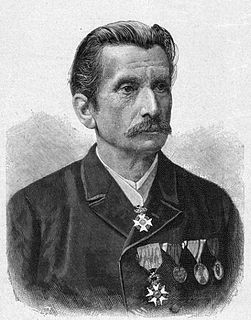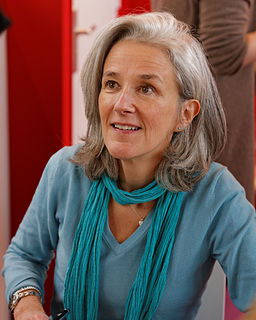A Quote by John Greenleaf Whittier
Nature eschews regular lines; she does not shape her lines by a common model. Not one of Eve's numerous progeny in all respects resembles her who first culled the flowers of Eden. To the infinite variety and picturesque inequality of nature we owe the great charm of her uncloying beauty.
Related Quotes
Nature! We live in her midst and know her not. She is incessantly speaking to us, but betrays not her secret. We constantly act upon her, and yet have no power over her. Variant: NATURE! We are surrounded and embraced by her: powerless to separate ourselves from her, and powerless to penetrate beyond her.
I saw sensuality as sacred, indeed the only sacredness, I saw woman and her beauty as divine since her calling is the most important task of existence: the propagation of the species. I saw woman as the personification of nature, as Isis, and man as her priest, her slave; and I pictured her treating him as cruelly as Nature, who, when she no longer needs something that has served her, tosses it away, while her abuses, indeed her killing it, are its lascivious bliss.
To be a woman condemned to a wretched and disgraceful punishment is no impediment to beauty, but it is an insurmountable obstacle to power. Like all persons of real genius, her ladyship well knew what accorded with her nature and her means. Poverty disgusted her -subjection deprived her of two-thirds of her greatness. Her ladyship was only a queen amongst queens: the enjoyment of satisfied pride was essential to her sway. To command beings of an inferior nature, was, to her, rather a humiliation than a pleasure.
The woman who looks to God in the face of unkindness becomes more beautiful through suffering. Her face does not bear the lines of bitterness and a disturbed countenance. She displays a rare and remarkable beauty because she has learned to wait upon God. Her happiness is out of reach of those who have wronged her.
At the same time that she [nature] solicits him [man] to follow her not only into her open walks, but likewise to explore her secret recesses, she - fails not to reward him with the purest gratifications of the mind, because at every step he takes, new instances of beauty, variety, and perfection are unfolded to his view.
You may command Nature to the extent only in which you are willing to obey her. You cannot intelligently obey that which you do not comprehend. Therefore I also say, ask of Nature that you may be one with her and she will whisper her secrets to you to the extent in which you are prepared to listen. Seek to be alone much to commune with Nature and be thus inspired by her mighty whisperings within your consciousness. Nature is a most jealous god, for she will not whisper her inspiring revelations to you unless you are absolutely alone with her.
She wrote poetry constantly; that was her "work". She was a slow bleeder and she slaved over it for long, exhausting hours, and many a middle of a night I could hear her creaking around the dead house with a pen in one hand, a clipboard and a flashlight in the other, refining her poems, jotting down the lines of a conceit. Writing never came easy for her; it gave her calluses. She never courted the muses, she wrestled them, mauled them all over the house and came up, after weeks of peripatetic labor, with a slim Spencerian sonnet, fourteen lines of imagistic jabberwocky.
Though nature is constantly beautiful, she does not exhibit her highest powers of beauty constantly, for then they would satiate us and pall upon our senses. It is necessary to their appreciation that they should be rarely shown. Her finest touches are things which must be watched for; her most perfect passages of beauty are the most evanescent.






































